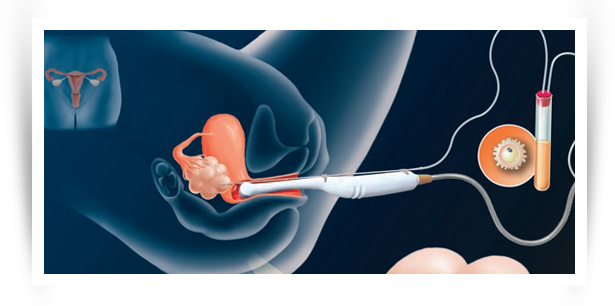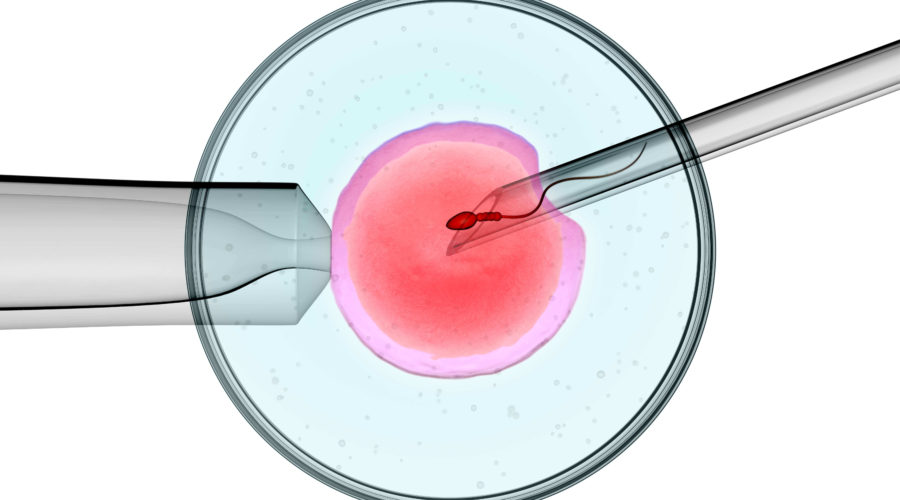In Vitro Fertilization (IVF)
In vitro fertilization (IVF) has been a technique for assisting reproduction for over three decades, evolving from a niche procedure into one of the world’s most widely used fertility treatments. IVF is the most frequently recommended treatment strategy for infertility because it addresses reproductive difficulties experienced by both potential parents.
Additionally, IVF offers same-sex parents the opportunity to experience conception and childbirth in a way that involves both partners.
For many parents who have overcome infertility, IVF is the gold standard of assisted reproductive technology. At PRC, we have helped hundreds of patients achieve successful pregnancies with IVF and supplementary treatments.
What is In Vitro Fertilization?
IVF is a procedure that facilitates pregnancy through a step-by-step process involving fertility medications, surgical intervention, laboratory science, and implantation. While the procedures are highly complex and require a great deal of precision, they yield excellent results for a diverse population of parents experiencing various fertility challenges.
The first step in IVF is egg maturation. For parents who are not using a donor, the female partner is administered ovulation induction medications that accelerate the production of eggs. This process allows multiple eggs to be produced, thereby increasing the possibility of successful fertilization.
The patient will be monitored with ultrasounds and blood analysis to keep track of the progress.

When the eggs have matured, they are extracted in a procedure known as egg retrieval. It is a minimally invasive surgery called transvaginal ultrasound aspiration. It involves inserting a device into the vagina that allows the surgeon to view the egg follicles within the ovaries.
Once the egg follicles have been identified, a needle is inserted through the device that gently pulls the mature eggs from the follicles. The patient is given medication that minimizes discomfort, but sedation is not required.

Once the eggs have been retrieved, the eggs that appear to have the greatest potential for successful fertilization are prepared for introduction to the sperm cells provided by the partner or donor.
Though many patients opt for conventional insemination when eggs are stored with sperm overnight in an incubation process, some patients elect to fertilize the eggs using intracytoplasmic sperm injection (ICSI). This is when an individual healthy sperm cell is injected into the egg. ICSI is typically advised when male infertility is a contributing factor.

Once the egg or eggs are fertilized, it might be advisable for the embryo to undergo assisted hatching. This is where the firm outer cellular layer (zona pellucida) is pierced to enable the embryo’s attachment to the uterus.
Assisted hatching is not recommended for all patients, but may be helpful in women who are older (more than 37 years old) or who have had a prior IVF failure.
The final step before pregnancy is embryo transfer. This involves the vaginal insertion of a catheter and syringe through which the embryo is passed into the uterine cavity. If the embryo attaches successfully to the uterine wall, pregnancy will occur. This generally takes place between one week and ten days post-egg retrieval.
Is IVF Right for Me?
IVF has delivered successful outcomes for potential parents experiencing the following fertility difficulties:
- Patients with blockages in the fallopian tubes
- Patients experiencing unexplained infertility
- Patients with endometriosis
- Patients with fibroid growths
- Patients who have undergone tubal ligation
- Patients with low sperm count or poor sperm motility
- Patients seeking to preserve fertility before undergoing medical procedures that might inhibit the reproductive capacity
The IVF process up to embryo transfer can take up to two months to complete. While IVF has helped many parents achieve healthy pregnancies, certain factors can still help or hinder your chances of a successful birth.
IVF Success Rates
The success of an IVF procedure depends on several factors such as your reproductive history, the age of the mother, the cause(s) of infertility, and lifestyle factors. In the US, the live birth rate for women under 35 years of age is between 41-43%. The rate diminishes with age such that for women over 40, it is between 13-18%.
Your reproductive support team at Chamveng Fertility clinic will guide you through the IVF process and develop a customized treatment plan that maximizes your probability of welcoming a beautiful baby into your family.